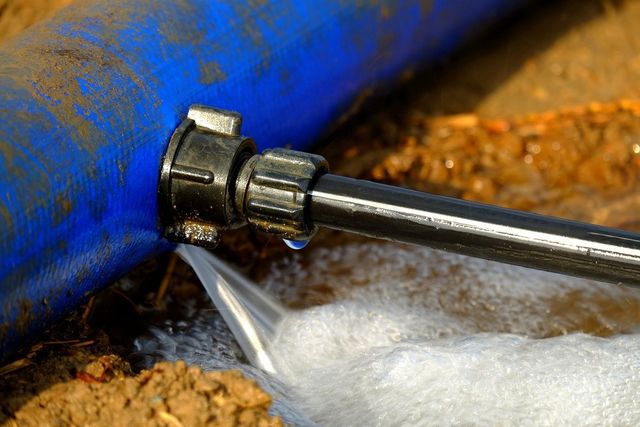What're your thoughts and feelings about Top leak detection hacks?

Early detection of dripping water lines can reduce a prospective disaster. Some small water leaks might not be visible.
1. Take A Look At the Water Meter
Every house has a water meter. Examining it is a guaranteed way that helps you uncover leaks. For starters, turn off all the water resources. Guarantee no one will purge, use the faucet, shower, run the cleaning maker or dishwasher. From there, go to the meter and also watch if it will change. Considering that no person is utilizing it, there should be no activities. If it relocates, that shows a fast-moving leak. If you discover no changes, wait a hr or 2 as well as examine back again. This suggests you may have a slow leakage that can also be below ground.
2. Inspect Water Consumption
Evaluate your water bills as well as track your water intake. As the one paying it, you need to observe if there are any type of inconsistencies. If you find sudden changes, in spite of your intake coinciding, it means that you have leakages in your plumbing system. Remember, your water expense should fall under the exact same array monthly. An unexpected spike in your costs indicates a fast-moving leakage.
At the same time, a steady increase every month, even with the exact same routines, reveals you have a slow-moving leakage that's also gradually escalating. Call a plumber to extensively examine your home, particularly if you feel a warm area on your floor with piping underneath.
3. Do a Food Coloring Test
30% comes from bathrooms when it comes to water usage. Test to see if they are running correctly. Decrease specks of food color in the container and also wait 10 mins. There's a leakage between the tank and also dish if the color somehow infiltrates your dish during that time without flushing.
4. Asses Exterior Lines
Do not forget to inspect your exterior water lines also. Ought to water permeate out of the link, you have a loosened rubber gasket. One small leak can lose tons of water and spike your water bill.
5. Check as well as Assess the Scenario
House owners ought to make it a behavior to examine under the sink counters and also even inside cabinets for any kind of bad odor or mold growth. These 2 red flags indicate a leak so prompt attention is called for. Doing routine evaluations, also bi-annually, can conserve you from a significant trouble.
If you know your house is already old, maintain a watchful eye on your heating units, hose pipes, pipelines etc. Check for stainings and damaging as a lot of home appliances as well as pipelines have a life span. They will certainly additionally naturally degrade due to damage. Don't wait for it to rise if you suspect leaking water lines in your plumbing system. Call an expert plumber immediately so you don't end up with a dreadful mess in your home.
Early discovery of leaking water lines can minimize a possible catastrophe. Some small water leakages might not be noticeable. Checking it is a proven way that helps you uncover leakages. One small leakage can squander bunches of water as well as spike your water bill.
If you suspect leaking water lines in your plumbing system, don't wait for it to intensify.
WARNING SIGNS OF WATER LEAKAGE BEHIND THE WALL
PERSISTENT MUSTY ODORS
As water slowly drips from a leaky pipe inside the wall, flooring and sheetrock stay damp and develop an odor similar to wet cardboard. It generates a musty smell that can help you find hidden leaks.
MOLD IN UNUSUAL AREAS
Mold usually grows in wet areas like kitchens, baths and laundry rooms. If you spot the stuff on walls or baseboards in other rooms of the house, it’s a good indicator of undetected water leaks.
STAINS THAT GROW
When mold thrives around a leaky pipe, it sometimes takes hold on the inside surface of the affected wall. A growing stain on otherwise clean sheetrock is often your sign of a hidden plumbing problem.
PEELING OR BUBBLING WALLPAPER / PAINT
This clue is easy to miss in rooms that don’t get much use. When you see wallpaper separating along seams or paint bubbling or flaking off the wall, blame sheetrock that stays wet because of an undetected leak.
BUCKLED CEILINGS AND STAINED FLOORS
If ceilings or floors in bathrooms, kitchens or laundry areas develop structural problems, don’t rule out constant damp inside the walls. Wet sheetrock can affect adjacent framing, flooring and ceilings.
https://www.servicemasterbyzaba.com/blog/how-to-detect-water-leakage-in-walls/

As an avid reader on Finding hidden leaks, I imagined sharing that segment was a smart idea. For those who liked our blog entry plz don't forget to share it. I appreciate reading our article about Hacks to detect leaks.
Comments on “6 Ways to Locate Concealed Water Leaks in Your Home”